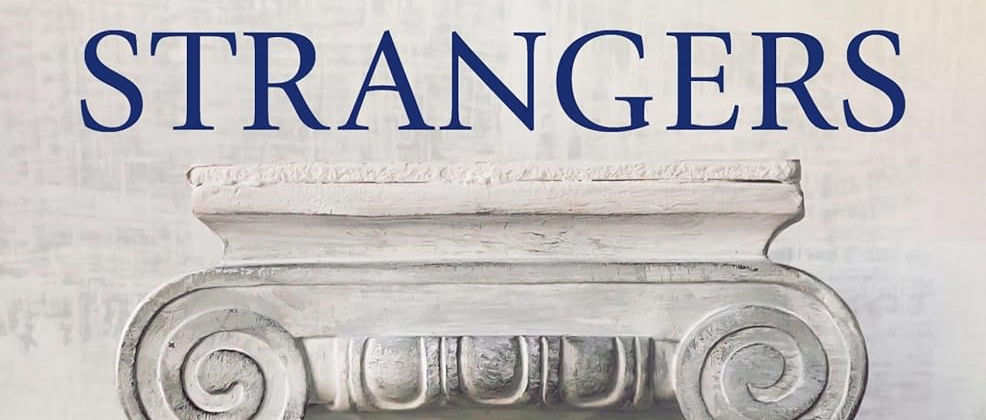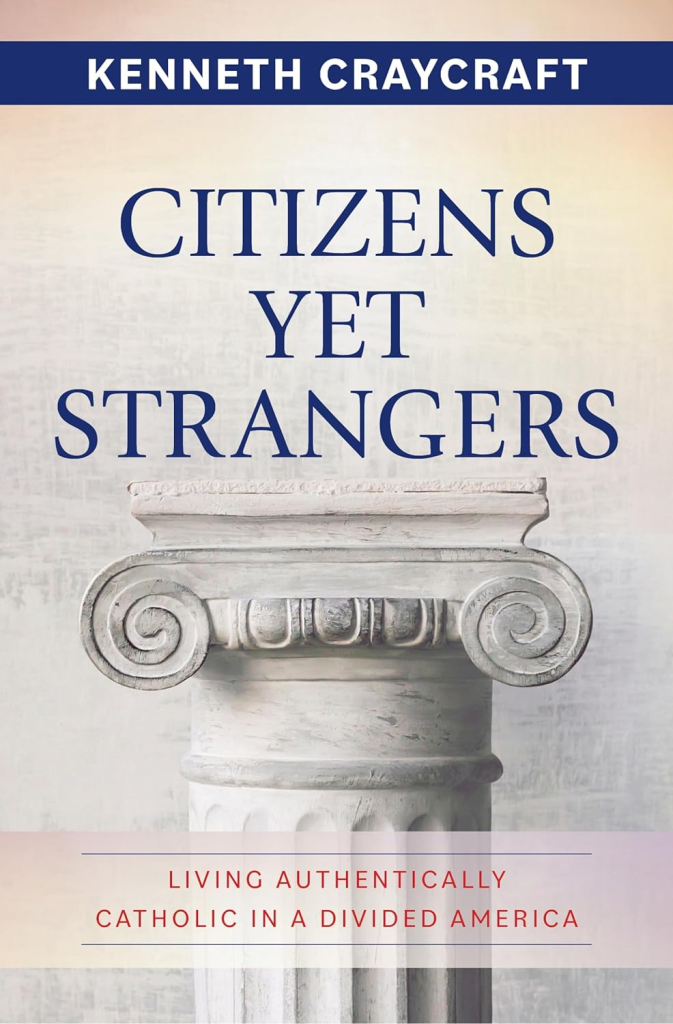

Today at the Arena, we celebrate the upcoming publication of a timely book for this moment of political division, especially among Christians of various kinds. Kenneth Craycraft is a licensed attorney and the James J. Gardner Family Chair of Moral Theology at Mount St. Mary’s Seminary & School of Theology. He holds a PhD in theology from Boston College and a JD from Duke University School of Law. The official release date for his new book is next Tuesday, but it seemed appropriate to run this interview on Super Tuesday. Also, readers can find an excerpt from the book here.
Nadya Williams: Your book seems so timely for this election year, but I am guessing there is a larger story behind this project–after all, books tend to live in our heads rent-free for years before they materialize on paper. What led you to write this book, and what are the main takeaways you hope your readers will gain from it?
Kenneth Craycraft: You are correct on both counts. The release of the book is timed for the midst of the presidential primary campaign season, and then, of course, the general election. Our hope is to make the book available at a time when people are starting to become ever more focused on the 2024 election—and wondering how to think about it from the standpoint of faith. Of course, the book is written with a Catholic audience in mind. But much of my argument in the book is relevant to evangelicals, as well. I think that the same kinds of conscientious deliberations that Catholics are going through in this election are not dissimilar to those of evangelicals.
The book has been long gestating in my mind, as I have considered the problem of Christian faith in the context of American liberal politics. But “liberal,” as I define it in the book, I do not mean those who identify with the political left generally or the Democrat party in particular. Rather, the term refers to virtually all Americans from the extremes of the political right to the political left. I define liberalism, broadly, as a commitment to individualism, personal autonomy, private morality, and “rights” as the foundation of the moral life. None of these things are derived from a Catholic Christian understanding of the human person. And, in fact, I argue that they are contrary to it. But they also have formed a very strong narrative in the United States, such that many Catholics (and other Christians) are not able to see the difference between what they take to be Catholic faith (or a moral life formed by Catholic theology) and liberal moral theory. As I put it in the book, we have learned to speak American while forgetting to speak Catholic.
Thus, the book proposes an attempt to recover a distinctly Catholic moral grammar and vocabulary, not so much that we can reform America, but so that we can witness to the truth of the Faith in the context of the false promises (and false moral anthropology) of liberalism. This is rooted in the four-fold Catholic Social Doctrine of dignity, solidary, subsidiarity, and common good.
NW: Obviously your primary audience is American Catholics. Still, as a conservative evangelical Protestant, I find the overall call you are making in this book to move beyond partisan politics obviously compelling and Augustinian in nature (all the City of God vibes!). What are your thoughts in this regard: what aspects of your argument do you think Protestants would particularly benefit from hearing?
KC: Yes, I think the book will resonate with a certain kind of conscientious evangelical Protestant Christian. While my primary audience is Catholic, I do not engage any of the fundamental theological or doctrines that divide Catholics and evangelicals. And, in fact, the indictment that we have largely been shaped not by Christian moral teaching but liberal moral theory applies no less to evangelicals to Catholics. A central argument of the book is that Catholics have allowed their public policy positions to be shaped by party loyalty rather than Catholic moral teaching. I don’t think this is any less true of evangelicals. The only difference is that evangelicals probably skew more toward the right than the left, whereas Catholics seem to be more evenly split. But the malady is the same in any case: our moral and policy positions are formed by partisan commitments rather than Christian moral theology.
I think evangelicals will be even more challenged in some ways, because much of their formation is built deliberately on a certain kind of individualism that has never been a part of traditional Catholic teaching. Issues like sola scriptura and sola fide lend themselves to the disintegration of any sense of solidarity and common good. While we Catholics have largely forgotten our moral language, the moral language that is deliberately embraced by evangelicals is no less of a problem. And, again, it exposes evangelicals to having their moral lives formed by party politics rather than Christian moral theology. The individualist instinct in evangelical Protestantism is consistent with the same instinct in American liberalism. This deliberate embracing of a moral language is actually a more fundamental problem than Catholics forgetting a moral language.
Put another way, the book may be even more provocative for an evangelical Protestant. One way of framing my complaint is that Catholics have unwittingly embraced an individualist moral anthropology at odds with the Catholic moral tradition. But that moral tradition seems to be a fundamental aspect of evangelicalism. Perhaps the book might be an occasion for evangelicals to think about solidarity and common good, not as collectivist impulses but rather expressions of a true vision of the human person.
NW: Can you give us a taste of something surprising or unusual that you found in your work on this book?
KC: While the issues in the book have been percolating in my mind for many years, the writing of the book, itself, was on a very tight schedule. The publisher and I wanted to release the book in the midst of the primary season, but we didn’t come to terms on the structure of the book until the schedule looked very difficult. So, I found myself writing more quickly and economically than I might have otherwise. The pressure of the deadline probably made it a better book. Not, of course, because it was rushed, but rather because it forced me to distill my writing. The reader will be the judge of the relative success of that, of course.
NW: Is there anything that you would have liked to include in the book or discuss in greater detail, but it simply had to get left out for the moment?
KC: Yes, the chapter on political life, per se, is much too short. But I realized that to lengthen it to say all I wanted would require another book. Stay tuned.
NW: What are the broader questions that fascinate you in your reading, thinking, and writing?
KC: The implicit approach to the book is what is sometimes called “narrative” theology. I am very interested in the way that stories form our moral lives, both for good and for ill, and how the Christian story helps us to see the world truthfully (to paraphrase Stanley Hauerwas). This opens the moral life to a broader, more hopeful consideration of all that is good in creation. The Christian story teaches us what is good, what falls short of good, and how to tell the difference. It also equips us to identify and resist those false stories (such as, ahem, American liberalism), that make claims on our moral, public, and political lives. I am an avid reader of all sorts of fiction and see the attempts of artists to make truth claims as no less valid than the attempts of scientists and historians. This is something I would like to develop in future work.